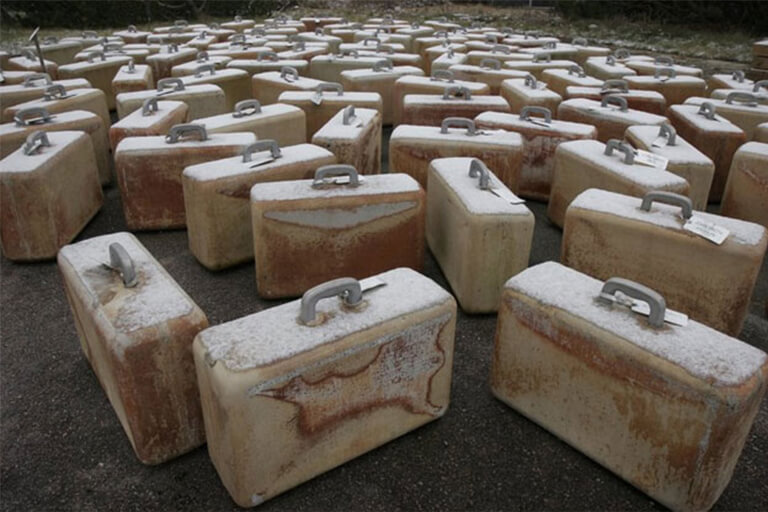Muslim Voices — Afghan Leila

Audio transcript:
0:00:06:>>ROSEMARY PENNINGTON: Welcome to Muslim Voices. I'm your host, Rosemary Pennington. Mention Afghanistan and more likely than not, what comes to mind are sky blue burqas worn by women during the Taliban's regime. The burqa became one of the most visible symbols of Afghani oppression. Since the Taliban's fall, women have slowly been gaining more rights although there are still many who do not feel comfortable venturing outside their homes without that blue cloth draping them. 51-year-old Layla, though, is not among them. Layla's lived much of her adult life outside her native country. Her family fled during the war with the Soviets. She returned to Afghanistan in 2009 where reporter Doug Westin caught up with her. While talking with Doug, she spoke of her childhood of fleeing her country and of what she thought when she began seeing Afghani women in burqas on the news. Here's Layla in her own words.
0:01:04:>>: (MUSIC PLAYING)
0:01:14:>>LAYLA: Burqa, actually the burqa is not from Afghanistan. It's came from - I don't know - from India or Pakistan or somewhere. But the world in our time in Afghanistan, me and - I don't know - my mom and my even my grandma and never had a burqa. Burqas, new things now for us also. When I saw first on the TV on (unintelligible). You know, and my children was asking, mom, what is this?
0:01:48:>>: (MUSIC PLAYING)
0:01:58:>>LAYLA: I was like other people. I was a little girl, and I had - I was a very. Active girl, actually. Yeah, I used to play basketball. I used to play volleyball in the school in Kabul. By that time, it was very nice and very good. We had a lot of - I had everything, actually. But when I left Afghanistan I was 19, and almost 30 years I spent in America. During the Russian Revolution and how hard life was in danger. And plus my husband family, they were in danger, my father-in-law was killed and their family about (unintelligible) my husband's uncle was killed. And that's why we decide to leave Afghanistan. That time was easy we left Afghanistan and then my family left and then my husband family we all moved to America. I had in my mind all the time when I was a little girl. I want to go to America, even my dad was alive. And I used to ask him, we have to go to America. And he was saying, well, when you got married, they will send you to America. That's why then I don't have my dad that time when I left Afghanistan. He was passed away. But I still left where we landed in America. It's like my own home, and it is my home, actually.
0:03:43:>>: (MUSIC PLAYING)
0:03:53:>>LAYLA: Islam, it's actually the name of - Islam is actually said peace. And we call a (unintelligible). Islam is not like you are to go do something bad. It's you have to be good with your neighbor. You have to be good with everybody. Islam is not saying to you go kill the people. Whether you good do something bad to the people, it says you have to live peaceful. Hopefully you will be - one day Afghanistan will be - one day, the Afghanistan will become a peaceful place and everyone can live like the right way to live. It's not like they have to worry about the Taliban or that they worry about someone else. Yes, (unintelligible) on life.
0:04:43:>>: (MUSIC PLAYING)
0:04:55:>>ROSEMARY PENNINGTON: Layla, left Afghanistan in 1979 and returned just last year. The sound was gathered by reporter Doug (unintelligible).
0:05:04:>>: (MUSIC PLAYING)
0:05:09:>>ROSEMARY PENNINGTON: This has been Muslim Voices, a production of voices and visions in partnership with WFIU public media from Indiana University. Support comes from the Social Science Research Council. Music was provided by Animus. You can find Muslim Voices on iTunes, Twitter or Facebook. You can also take part in the discussion at our website, muslimvoices.org. (2010-01-11)_40-Muslim-Voices-Afghan-Leila


 IU Global
IU Global